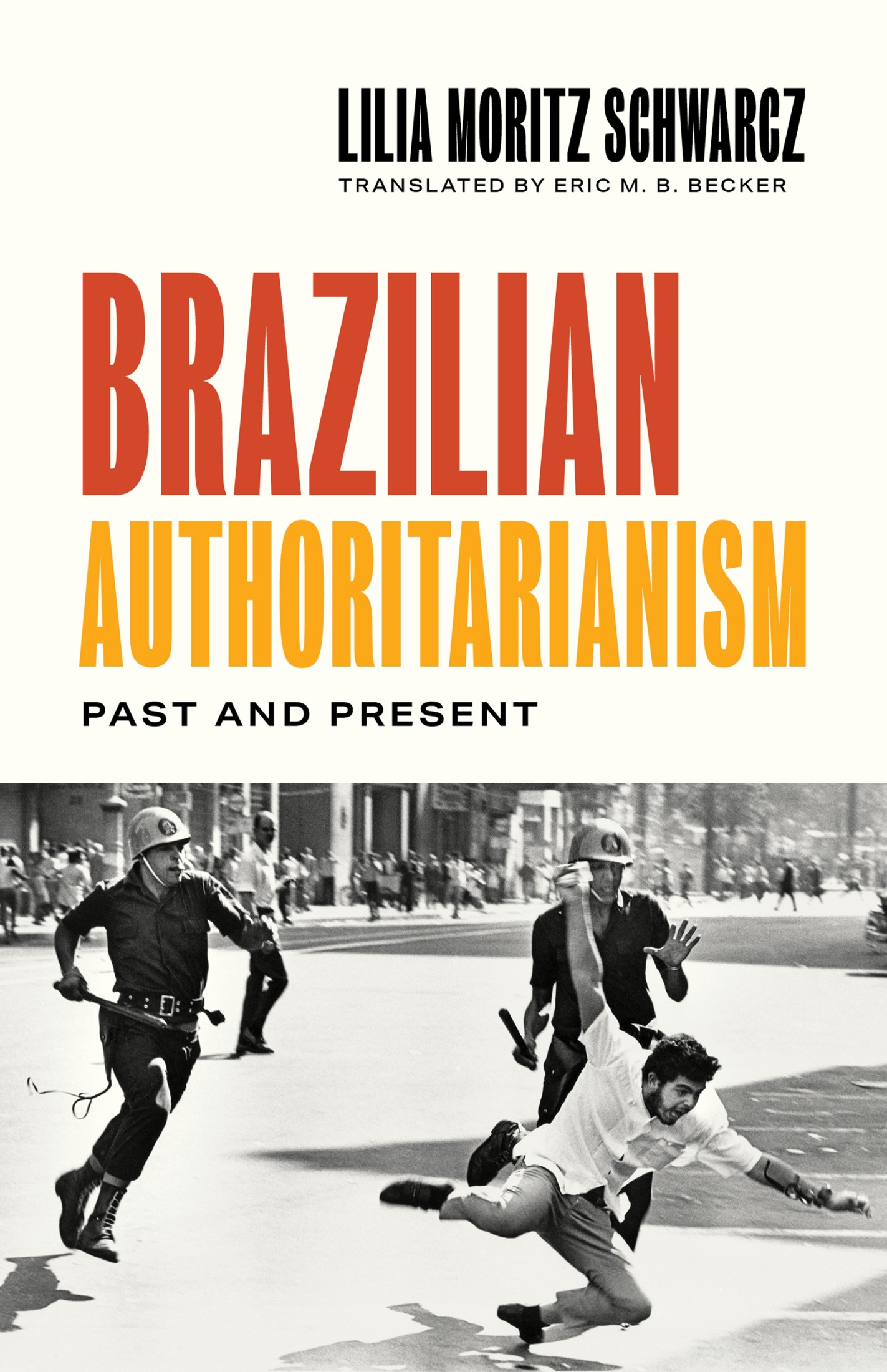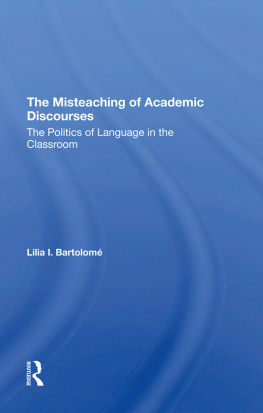Lilia Moritz Schwarcz - Brazilian Authoritarianism
Here you can read online Lilia Moritz Schwarcz - Brazilian Authoritarianism full text of the book (entire story) in english for free. Download pdf and epub, get meaning, cover and reviews about this ebook. year: 2022, publisher: Princeton UP, genre: Politics. Description of the work, (preface) as well as reviews are available. Best literature library LitArk.com created for fans of good reading and offers a wide selection of genres:
Romance novel
Science fiction
Adventure
Detective
Science
History
Home and family
Prose
Art
Politics
Computer
Non-fiction
Religion
Business
Children
Humor
Choose a favorite category and find really read worthwhile books. Enjoy immersion in the world of imagination, feel the emotions of the characters or learn something new for yourself, make an fascinating discovery.

- Book:Brazilian Authoritarianism
- Author:
- Publisher:Princeton UP
- Genre:
- Year:2022
- Rating:4 / 5
- Favourites:Add to favourites
- Your mark:
- 80
- 1
- 2
- 3
- 4
- 5
Brazilian Authoritarianism: summary, description and annotation
We offer to read an annotation, description, summary or preface (depends on what the author of the book "Brazilian Authoritarianism" wrote himself). If you haven't found the necessary information about the book — write in the comments, we will try to find it.
Brazilian Authoritarianism — read online for free the complete book (whole text) full work
Below is the text of the book, divided by pages. System saving the place of the last page read, allows you to conveniently read the book "Brazilian Authoritarianism" online for free, without having to search again every time where you left off. Put a bookmark, and you can go to the page where you finished reading at any time.
Font size:
Interval:
Bookmark:

BRAZILIAN AUTHORITARIANISM
Brazilian Authoritarianism
PAST AND PRESENT
LILIA MORITZ SCHWARCZ
TRANSLATED BY ERIC M. B. BECKER
PRINCETON UNIVERSITY PRESS
PRINCETON & OXFORD
English translation copyright 2022 by Eric M. B. Becker
Copyright 2019 by Lilia Moritz Schwarcz
First published in Brazil by Companhia das Letras, So Paulo
Princeton University Press is committed to the protection of copyright and the intellectual property our authors entrust to us. Copyright promotes the progress and integrity of knowledge. Thank you for supporting free speech and the global exchange of ideas by purchasing an authorized edition of this book. If you wish to reproduce or distribute any part of it in any form, please obtain permission.
Requests for permission to reproduce material from this work should be sent to
Published by Princeton University Press
41 William Street, Princeton, New Jersey 08540
99 Banbury Road, Oxford OX2 6JX
press.princeton.edu
All Rights Reserved
Library of Congress Cataloging-in-Publication Data
Names: Schwarcz, Lilia Moritz, author.
Title: Brazilian authoritarianism : past and present / Lilia Moritz Schwarcz; translated by Eric M. B. Becker.
Other titles: Sobre o autoritarismo brasileiro. English
Description: Princeton : Princeton University Press, 2022. | Includes bibliographical references and index.
Identifiers: LCCN 2021051259 (print) | LCCN 2021051260 (ebook) | ISBN 9780691210919 (Hardback) | ISBN 9780691238760 (eBook)
Subjects: LCSH: AuthoritarianismBrazil. | AuthoritarianismBrazilHistory. | BrazilPolitics and government. | BrazilSocial conditions. | BISAC: POLITICAL SCIENCE / Political Ideologies / Fascism & Totalitarianism | HISTORY / Latin America / South America
Classification: LCC JC481 .S44 2022 (print) | LCC JC481 (ebook) | DDC 320.530981dc23/eng/20220112
LC record available at https: / /lccn.loc.gov/2021051259
LC ebook record available at https: / / lccn.loc.gov/2021051260
Version 1.0
British Library Cataloging-in-Publication Data is available
Editorial: Fred Appel and James Collier
Production Editorial: Natalie Baan
Jacket Design: Lauren Smith
Production: Erin Suydam
Publicity: Kate Hensley, Kathryn Stevens, and Maria Whelan
We Brazilians are like Robinson Crusoe: forever awaiting the ship which will rescue us from the island where we have been shipwrecked.
LIMA BARRETO, TRANSATLANTICISM, CARETA
Those who cannot remember the past are condemned to repeat it.
GEORGE SANTAYANA, THE LIFE OF REASON
- ix
BRAZILIAN AUTHORITARIANISM was first published, in Portuguese, in May 2019. It was written in the heat of the moment, soon after the November 2018 presidential poll that resulted in the election of the far-right candidate Jair Bolsonaro in the second round. At the time of publication, the book was one of the first to reflect on Brazils hard swing to the right: after thirty years of progressive governments that defended the resumption and reconstruction of democracy, the country was to have a retired military captain in the presidency, a man who had served in the Congress for twenty-eight years and had achieved little beyond sowing political division and hate. During this time, he managed to pass only two bills. It was this same man who, in 2016, on the occasion of the vote to impeach President Dilma Rousseff, then serving her second term, had hailed the actions of General Brilhante Ustra (19322015), an individual who had been revealed as a torturer, thanks to the work of the Truth Commission, but who had never faced any consequences, despite being known to have tortured Rousseff herself when she was a political prisoner of the military dictatorship that ruled the country from 1964 to 1985.
In the original version of the book that readers of English now have before them, the name Bolsonaro appeared only infrequentlycited more commonly as a symptom of the transformation of Brazil into an authoritarian country than as a cause. The intention (then and now) was to avoid dating the work, instead demonstrating how Bolsonaros rise was the result of historical circumstances, echoes of the past in the present: a past stretching back to the time when Brazil was still a Portuguese colony, and when hierarchies of command and subordination became ingrained. In the first place, slavery, widespread throughout this country of continental proportions, took for granted the influence of the few and the subjugation of the many. The plantation model meant that the absolute power of landownerssocial, cultural, political, and religiousresulted in a profoundly unjust and hierarchical society. These models created enduring structures that resonate to this day in contemporary forms of bossism, clientelism, racism, misogyny, and sexism, very much routine elements of national life.
Since the books publication in Portuguese, Jair Bolsonaro has been president of Brazil for more than three years, and what was once conjecture is today reality. In the first place, the current government has promoted a veritable dismantling, and the simultaneous bureaucratic and ideological takeover, of Brazilian cultural and educational institutions. Since the new president entered office on January 1, 2019, Brazilians have witnessed a growing authoritarianism and systematic control of various cultural, scientific, and educational institutions, involving the appointment of ministers and secretaries lacking the requisite technical and professional expertise, who are there for no other reason than their commitment to the governments moral and ideological agenda. These actions amount to a power grab, a sort of culture war, which has no intention of mirroring the plurality of the Brazilian people and which works through intimidation.
There are many examples. Soon after the government took power, a federal deputy from the presidents former party, the far-right Social Liberal Partyit is important to note that since November 12, 2019, Jair Bolsonaro himself has had no party affiliationmade a public appeal to students to film their professors and denounce them for ideological indoctrination, incentivizing attacks on and the discrediting of educators, the consequences of which continue to this day. In another declaration, the president asserted that Brazils school textbooks say many things and that everything would change once we finish ours, making clear his intent to directly interfere in public school materials, and in a most sectarian way. The Brazilian government even removed more than 130 Brazilian film posters from the National Film Agency website, alleging they were immoral and anti-patriotic, and also refused to recognize the conferral of the Prmio Camesthe most important literary prize in the Portuguese-speaking world and one recognized by the presidents of all Portuguese-speaking countriesupon writer and musician Chico Buarque, on account of Buarques disapproval of the presidents political ideas. In a related development, the government did away with the Ministry of Culture and transformed it into a secretariat with limited funding under the Ministry of Tourism.
On January 17, 2020, the then special secretary of culture Roberto Alvim plagiarized Nazi general propaganda minister Joseph Goebbelsin a speech that lifted entire sections from speeches made by his mentor, complete with Wagner playing in the background, and even the ministers own vocal imitation of Goebbelsduring his announcement of a new national artistic prize, when he also held forth on conservative expectations for Brazilian art. The secretary was dismissed after public outcry, but this government could not care less about freedom of expression and opiniondespite constantly invoking both, particularly when justifying its own acts of censorship or antidemocratic speech. The truth is, the former secretary too is a symptom of this authoritarian process, not its cause. The day before Alvims unfortunate speech, in a Facebook Live broadcast with the president, the two men praised the countrys swing to the right and the resulting cultural reboot, completely ignoring the rich cultural production to be found in Brazil today.
Font size:
Interval:
Bookmark:
Similar books «Brazilian Authoritarianism»
Look at similar books to Brazilian Authoritarianism. We have selected literature similar in name and meaning in the hope of providing readers with more options to find new, interesting, not yet read works.
Discussion, reviews of the book Brazilian Authoritarianism and just readers' own opinions. Leave your comments, write what you think about the work, its meaning or the main characters. Specify what exactly you liked and what you didn't like, and why you think so.









